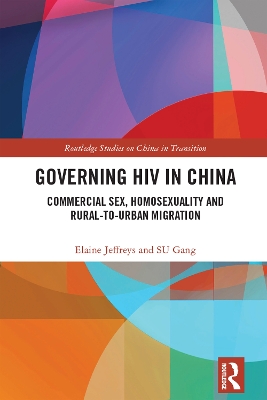Routledge Studies on China in Transition
2 total works
Prostitution Scandals in China presents an examination of media coverage of prostitution-related scandals in contemporary China. It demonstrates that the subject of prostitution is not only widely debated, but also that these public discussions have ramifications for some of the key social, legal and political issues affecting citizens of the PRC. Further, this book shows how these public discussions impact on issues as diverse as sexual exploitation, civil rights, government corruption, child and youth protection, policing abuses, and public health.
In this book Elaine Jeffreys highlights China's changing sexual behaviours in the context of rapid social and economic change. Her work points to changes in the nature of the PRC's prostitution controls flowing from media exposure of policing and other abuses. It also illustrates the emergence of new and legally based conceptions of rightful citizenship in China today, such as children's rights, the right to privacy, work, sex, and health, and the rights of citizens to claim legal redress for losses and injuries experienced as the result of unlawful acts by state personnel.
Prostitution Scandals in China will be of great interest to students and scholars across a range of diverse fields including Chinese culture and society, gender studies and media and communication studies.
HIV and AIDS have long been problematized in the People’s Republic of China as objects of governance in political frameworks and institutions. The state’s attitudes towards health programs have, nevertheless, changed significantly during the 21st century. Pilot programs at the beginning of the century, which focused on underground sex workers, have now developed into the roll-out of a nationwide program, with supportive legislation and broadcast media publicity.
This book therefore examines China’s evolving AIDS response, providing an up to date investigation into the positions and practices of the state. It explains the origins, rationales and implementation of initiatives focused on female sex workers and explores the extension of such initiatives to include other populations identified as key to ending the AIDS epidemic, especially homosexual men and rural-to-urban migrant labourers. Ultimately, through an analysis of the different approaches to the governance of commercial sex and sexual health, Governing HIV in China concludes by considering the challenges raised by China’s commitment to the United Nations’ vision of ending AIDS as a global health threat by 2030.
This book will be useful for students and scholars of Social Policy, Public Health Policy and Chinese Studies.

